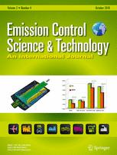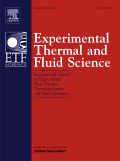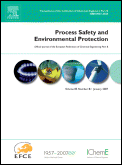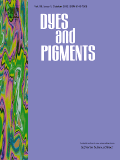
Emission Control Science and Technology
Scope & Guideline
Driving Progress in Automotive and Environmental Health
Introduction
Aims and Scopes
- Emission Control Technologies:
Research on the development, optimization, and application of technologies designed to reduce emissions from combustion engines and industrial processes, including catalytic converters, particulate filters, and advanced aftertreatment systems. - Environmental Impact Assessment:
Studies assessing the environmental implications of emissions from different sources, including transportation and industrial activities, focusing on methodologies for quantifying and mitigating these impacts. - Emission Measurement and Modeling:
Innovative approaches to measuring and modeling emissions, utilizing advanced sensors, machine learning, and computational fluid dynamics (CFD) to improve accuracy and reliability in emission data. - Sustainable Fuel Alternatives:
Exploration of alternative fuels and their impact on emissions, including biodiesel, natural gas, and hybrid systems, alongside studies on fuel additives and their effects on performance and emissions. - Policy and Regulatory Frameworks:
Analysis of policies and regulations related to emission control, exploring the influence of governmental and international frameworks on technology adoption and environmental outcomes.
Trending and Emerging
- Machine Learning Applications:
The application of machine learning algorithms for predicting and analyzing emissions is on the rise, emphasizing the potential for data-driven solutions in real-world emission monitoring and management. - Integrated Emission Control Systems:
There is a growing interest in integrated systems that combine multiple emission control technologies, reflecting a trend towards holistic solutions that address emissions more effectively. - Impact of COVID-19 on Emissions:
Research examining the effects of the COVID-19 pandemic on emission levels has emerged, highlighting the interplay between human activity, environmental policy, and emissions, leading to insights that could inform future strategies. - Advanced Catalytic Processes:
Studies focusing on novel catalytic processes, including the use of new materials and methods for enhancing catalytic performance in emission reduction applications, are increasingly prominent. - Sustainable Urban Mobility Solutions:
Research on sustainable mobility solutions, particularly in urban settings, is gaining attention as cities seek to reduce transportation emissions through innovative practices and technologies.
Declining or Waning
- Traditional Combustion Technologies:
Research focused on conventional combustion technologies appears to be waning, as newer, more efficient emission control technologies and alternative fuels take precedence over traditional methods. - Basic Emission Reduction Techniques:
Basic techniques for emission reduction, such as simple filtration methods, are increasingly overshadowed by advanced catalytic and hybrid technologies that offer higher efficiency and lower environmental impact. - Static Emission Measurement Approaches:
Static and less dynamic approaches to emission measurement are becoming less common, as the field shifts toward real-time monitoring and more sophisticated data analytics methodologies.
Similar Journals

ENVIRONMENTAL SCIENCE AND POLLUTION RESEARCH
Elevating Awareness of Environmental and Health IssuesEnvironmental Science and Pollution Research is a premier international journal published by Springer Heidelberg, dedicated to advancing knowledge in the field of environmental science and pollution. With an impressive impact factor reflecting its vital contributions to research, the journal is categorized in the top quartiles (Q1 and Q2) across several domains, including Health, Toxicology and Mutagenesis, and Environmental Chemistry. Established in 1994, it continues to be a critical resource for researchers, professionals, and students focusing on pressing environmental issues. The journal provides an insightful platform for disseminating significant findings related to pollution and its effects on health and the environment, contributing to a better understanding and resolution of these challenges. While it currently does not offer Open Access options, its inclusion in prominent rankings, such as the Scopus rankings, underscores its reputation and influence within the scientific community.

EXPERIMENTAL THERMAL AND FLUID SCIENCE
Unleashing the potential of experimental techniques in engineering.EXPERIMENTAL THERMAL AND FLUID SCIENCE is a prestigious academic journal published by Elsevier Science Inc, dedicated to advancing the fields of thermal and fluid sciences. With a strong focus on innovative experimental research, it plays a crucial role in disseminating new knowledge and techniques across multiple domains, including Aerospace Engineering, Chemical Engineering, Fluid Flow and Transfer Processes, Mechanical Engineering, and Nuclear Engineering. Holding a notable impact factor and ranking in the Q1 quartile across these categories since 2023, the journal is recognized for its high-quality contributions, which appeal to a diverse audience of researchers, industry professionals, and students alike. Additionally, with dedicated coverage from its inception in 1988 to projections extending through 2025, EXPERIMENTAL THERMAL AND FLUID SCIENCE provides a vital platform for sharing advancements in experimental techniques and findings that shape the future of engineering and applied sciences.

CHEMISTRY AND TECHNOLOGY OF FUELS AND OILS
Fueling Innovation through Research and DevelopmentCHEMISTRY AND TECHNOLOGY OF FUELS AND OILS, published by SPRINGER, is a pivotal journal dedicated to advancing the understanding and technologies surrounding fuels and oils. With its ISSN 0009-3092 and E-ISSN 1573-8310, this journal has been a reliable resource in the field since its inception in 1965, providing insights into the latest research and developments up until 2024. While it currently holds a Q4 status across various quartiles, including Chemical Engineering and Fuel Technology as of 2023, the journal's commitment to disseminating valuable knowledge plays a crucial role in nurturing the academic discourse surrounding energy and chemical processes. Although it does not offer Open Access, the journal is critical for researchers, professionals, and students aiming to deepen their expertise in energy engineering, chemical engineering, and fuel technology. Its contributions underlie significant advancements in sustainable energy practices and fuel innovations, making it an essential read for those engaged in these crucial scientific domains.

INTERNATIONAL JOURNAL OF AUTOMOTIVE TECHNOLOGY
Pioneering Research for a Sustainable Automotive FutureINTERNATIONAL JOURNAL OF AUTOMOTIVE TECHNOLOGY, published by the Korean Society of Automotive Engineers (KSAE), stands as a key platform in the field of Automotive Engineering since its inception in 2000. With an ISSN of 1229-9138 and an E-ISSN of 1976-3832, this esteemed journal aims to disseminate cutting-edge research, innovative methodologies, and advancements in automotive technology. As of 2023, it holds a distinguished Q2 quartile ranking in the Automotive Engineering category on Scopus, featuring a competitive rank of 48/125, illustrating its recognition among peers and the academic community. The journal also enjoys a global readership despite its base in South Korea. Researchers, professionals, and students in the automotive sector are encouraged to contribute to this journal, thus promoting collaboration and knowledge exchange that fosters innovation and progress in automotive engineering. Additionally, the journal is committed to enhancing accessibility of knowledge across boundaries and aims to continue serving as a catalyst for academic growth up to the year 2024.

Atmospheric Environment-X
Exploring the intersection of air quality and climate science.Atmospheric Environment-X, published by Elsevier Science Ltd, is a premier, open-access journal dedicated to advancing our understanding of atmospheric science and environmental disciplines. Since its inception in 2019, the journal has established itself as a critical platform for disseminating high-quality research, evident by its impressive Scopus rankings—39th out of 233 in General Environmental Science and 27th out of 148 in Atmospheric Science, placing it within the top quartiles of its fields. Operating from the United Kingdom, Atmospheric Environment-X aims to bridge the gap between fundamental research and practical applications, addressing pressing issues related to air quality, climate change, and environmental sustainability. With its commitment to open access, the journal encourages broad accessibility of knowledge, ensuring that cutting-edge research reaches a global audience of researchers, professionals, and students eager to contribute to the field. Join us as we explore the complexities of our atmosphere and its critical interactions with the environment through groundbreaking studies published up to 2024.

Asian Journal of Water Environment and Pollution
Transforming water science through interdisciplinary research.Asian Journal of Water Environment and Pollution is a leading academic journal published by IOS PRESS, dedicated to advancing the field of water science and technology, as well as pollution management. With its ISSN 0972-9860 and E-ISSN 1875-8568, this journal serves as a pivotal platform for researchers, professionals, and academics alike who are keen to explore innovative solutions and interdisciplinary approaches toward water-related challenges and environmental issues. Although currently positioned in the Q4 category for both pollution and water science & technology, the journal aims to foster impactful research and discussions that can enhance the understanding and treatment of water pollution. The Asian Journal of Water Environment and Pollution not only plays a crucial role in disseminating knowledge but also encourages the sharing of findings from unique geographic perspectives, particularly from Asia. As the field evolves, this journal is poised to become a vital resource for those looking to contribute to sustainable water management practices and pollution reduction strategies.

PROCESS SAFETY AND ENVIRONMENTAL PROTECTION
Fostering interdisciplinary solutions for a sustainable future.PROCESS SAFETY AND ENVIRONMENTAL PROTECTION, published by Elsevier, is a premier academic journal dedicated to advancing the fields of chemical engineering, environmental science, and safety management. With an impressive impact factor, this esteemed journal undergoes a meticulous peer-review process and serves as a vital platform for researchers, professionals, and students seeking to disseminate cutting-edge research and innovative practices. Submissions are welcome in a wide scope of topics related to safety, risk, reliability, and environmental engineering, demonstrating its influence as a Q1 journal across multiple categories, including Environmental Chemistry and Safety, Risk, Reliability and Quality. By providing a rigorous analysis of current challenges and solutions in the domain since its inception in 1990, it continues to foster interdisciplinary collaboration and practical applications in the United Kingdom and beyond. With the journal not currently offering Open Access options, subscribers gain exclusive access to pivotal insights that shape industry standards and drive advancements in sustainable practices.

International Journal of Heavy Vehicle Systems
Transforming Heavy Vehicle Systems Through ResearchThe International Journal of Heavy Vehicle Systems, published by INDERSCIENCE ENTERPRISES LTD in the United Kingdom, is a pivotal resource for professionals and researchers in the fields of automotive and mechanical engineering. With an ISSN of 1744-232X and an E-ISSN of 1741-5152, this journal serves as an academic platform dedicated to exploring the latest innovations and technologies pertaining to heavy vehicle systems, including design, performance, and environmental impact. Boasting a Category Quartile of Q3 in both Automotive and Mechanical Engineering as of 2023, it ranks among the growing body of literature in these disciplines, indicative of its commitment to quality research. The journal is widely accessible through diverse open access options, encouraging the dissemination of knowledge within the academic community. By publishing cutting-edge studies and reviews, the International Journal of Heavy Vehicle Systems plays an essential role in advancing our understanding of heavy vehicle technologies, providing invaluable insight for engineers, researchers, and students eager to contribute to this dynamic field.

DYES AND PIGMENTS
Illuminating the Path of Chemical Material Sciences.Dyes and Pigments, published by Elsevier Science Ltd, stands as a pivotal journal in the field of chemical engineering, particularly focusing on the realms of dyes and pigments as materials with extensive application across industries. Since its inception in 1980, this journal has evolved to capture cutting-edge research until 2024, making significant contributions to both the Chemical Engineering and Process Chemistry and Technology domains, where it currently ranks in the Q2 category. With an impressive Scopus ranking placing it among the top 82nd percentile in General Chemical Engineering and the top 73rd percentile in Process Chemistry and Technology, it demonstrates a robust commitment to publishing high-quality, impactful research. Although it does not offer an open-access option, its comprehensive content remains accessible to a wide audience of researchers, professionals, and students who are deeply engaged in the study and development of new dye and pigment technologies. Engaging with this journal not only enriches knowledge but also facilitates critical discussions that drive future innovations in chemical material sciences.

Additive Manufacturing Letters
Exploring Breakthroughs in Additive Manufacturing TechniquesAdditive Manufacturing Letters is a pioneering journal dedicated to the rapidly evolving field of additive manufacturing, offering an innovative platform for researchers, practitioners, and students interested in the latest advancements and technologies in this domain. Published by ELSEVIER in the Netherlands, this Open Access journal has been making significant strides since its inception in 2021, allowing for unrestricted access to its valuable content. As of 2023, it has achieved a commendable Q1 ranking in multiple categories including Engineering (miscellaneous), Industrial and Manufacturing Engineering, Materials Science (miscellaneous), and Mechanics of Materials, indicating its influential presence in the academic community. With a focus on high-quality research, Additive Manufacturing Letters fosters dialogue and collaboration among scholars, promoting cutting-edge research that aligns with the needs of the industry. Positioned at the intersection of engineering and materials science, this journal aims to enhance knowledge dissemination and support innovation in additive manufacturing methodologies and applications, making it an essential resource for anyone invested in advancing this field.